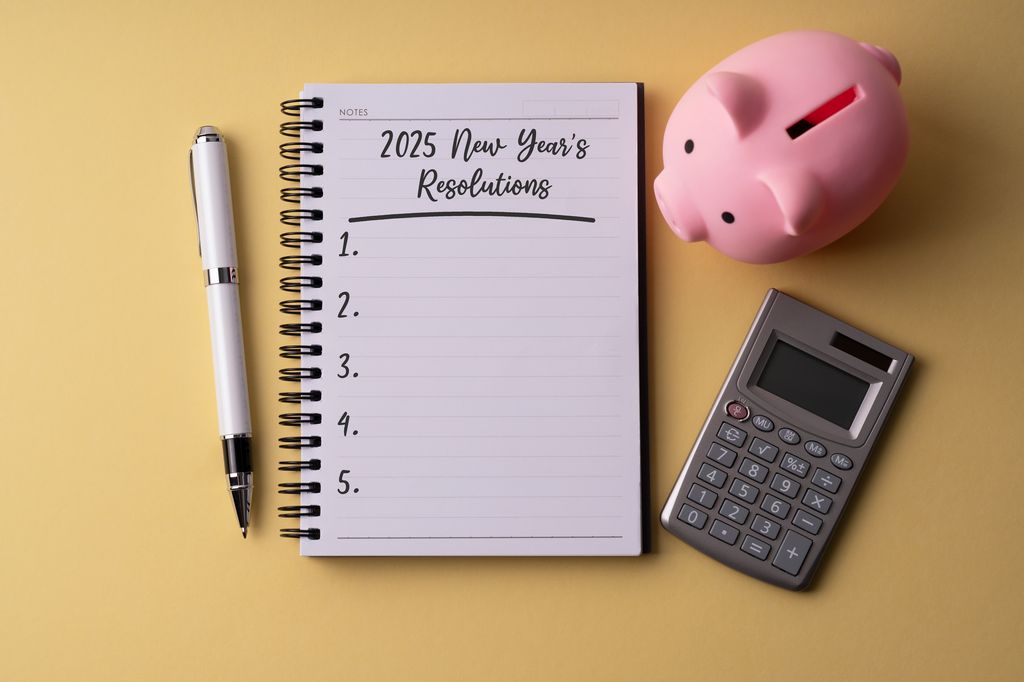With 2024 coming to a close and the clean slate of a new year around the corner, forecasters and trend predictors are lining up to tell us what’s going to be in and out for the next year (along with most likely telling us that our freshly painted walls are now an out of fashion colour).
But all home interiors aside, now is the perfect time to sit back, take stock and reflect on all things money from the past year and ask yourself, what habits do you want to keep building on, and what are the behaviours or patterns you plan to leave behind to pave the way for better financial health over the coming 365 days?
To get started, here are five money-related habits that we can all leave behind as the year ends.
Comparing your financial situation to others
You know how the saying goes, but I’ll say it again for good measure: comparison is the thief of joy, and there’s no area of life where the saying is more applicable than when it comes to finances.
In the hyper-connected world we live in where we’re constantly exposed to the highlights or snapshots that others choose to share online, it’s easy to fall into the trap of comparing ourselves to every person we scroll past, whether it’s a close friend whose circumstances you know in detail, or a long lost niece of a neighbour who you’ve never actually spoken to.
Yet even those who share what seem to be the most intimate details of their lives online rarely disclose the full, unedited version. Rather than letting the green-eyed monster get you down, 2025 is the time to say goodbye to comparison and readjust your focus onto the things within your control.
Avoiding conversations about money
Dodging uncomfortable conversations about money may give a sense of temporary relief from any stress or anxiety that the thought of these chats may bring, yet the truth is that it’s only ever short-lived.
Having open and honest conversations about money is one of the most powerful things you can do to improve your financial wellbeing, whether that’s discussions with your family members, partners or in the workplace. Remember you don’t have to dive in head first, either. Start off by talking about money in a broad context to build up trust before you get into the deeper questions and issues.
Buying things on sale that we don’t actually want
The days and weeks following Christmas are undoubtedly one of the busiest times of year for inboxes around the world, with seasonal sales everywhere you turn as stores try to shed their stock ready for January and the next sales cycle. Now’s the time to remind yourself about how sales actually work; if you truly want or need an item, then bagging a bargain during a sale can be a real saving.
On the other hand, if you buy an item that you had no intention of paying full price for simply because you can save 30%, you haven’t really saved any money at all. You’ve spent 70% of the cost that you would otherwise have in your bank account.
My number one tip for successful sale shopping? Pop any items that you’re on the fence about into your basket and leave them for 24 hours. Trust me, you’ll know if you really want the item when you revisit your basket the next day!
Thinking that starting can wait until [xyz] happens
Putting off hard things and kicking the can down the road can be tempting, whether it’s starting a new fitness plan or building a budget for the new year. The thing is, when it comes to money, then time is often your biggest asset and the sooner you start taking action, the better.
Financial Planner Katie Volker recommends setting financial goals to motivate you to take action. “What do you hope your money will allow you to do? Defining your money goals is the first step in helping you set a budget and stick to it. The process of understanding what’s coming in, what’s going out and learning how to save or invest the rest to help you achieve your goals is vital for financial success,” advises Katie.
DISCOVER: Festive finances stressing you out? 4 expert tips to take charge
It doesn’t matter how much you begin with, future you will be grateful down the line. Plus, there’s a huge benefit in starting to build a habit at whatever stage you’re at right now, rather than waiting for the perfect day which will most likely never come. Now is the time!
Ellie Austin-Williams is the author of Money Talks, a Lifestyle Guide for financial wellbeing. Find her on Instagram at @thisgirltalksmoney.
Read the full article here













